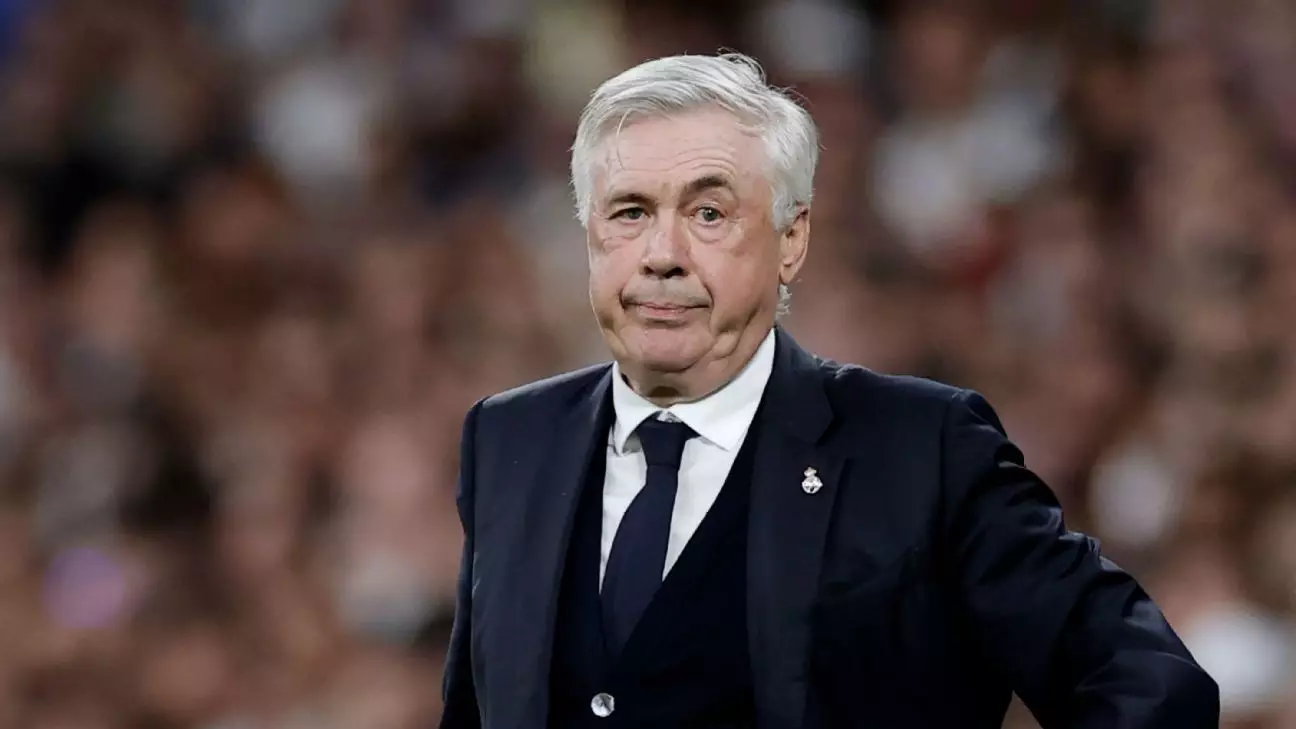Real Madrid, one of football’s most storied clubs, finds itself amid a significant dilemma regarding the future of Carlo Ancelotti, their highly regarded manager. After a season that has fallen short of expectations—losing crucial matches to both Arsenal in the Champions League and their fierce rivals Barcelona—Madrid’s frustration is palpable. With Ancelotti’s contract extending until June 2026, the club is reluctant to release him, particularly at a pivotal moment in La Liga and with the forthcoming Club World Cup on the horizon.
Brazil’s national team, meanwhile, has been keenly watching the situation. They hope to secure Ancelotti’s services to guide them through World Cup qualifiers against Ecuador and Paraguay. The Brazilian Football Confederation (CBF) had expressed optimism in finalizing a deal swiftly, but the financial complexities and timing of Ancelotti’s exit have created tensions that threaten to undo these plans.
Clashing Interests: Contractual Obligations vs. National Pride
The crux of the disagreement resides in the intricate dynamics of managerial contracts in football. Real Madrid appears unwilling to honor the remaining terms of Ancelotti’s deal, a caveat that complicates any potential transition to the Brazilian national team. This sentiment underscores a broader issue within football governance: the struggle between club loyalty, which often ties managers to lengthy contracts, and the pressing demands of national teams that seek immediate leadership in response to upcoming tournaments.
With CBF representatives engaged in negotiations in Madrid, they aim to avoid putting undue pressure on Ancelotti—a gesture that reflects an understanding of the delicate situation. It is essential for both parties involved to navigate these negotiations with care, given the reputations and careers at stake. The lack of immediate resolution leaves both the club and Ancelotti in a challenging limbo, where decisions must be made swiftly yet thoughtfully.
Repercussions for All Parties Involved
In the worst-case scenario, an unresolved situation could impact Real Madrid’s performance in their remaining league matches and the Club World Cup, jeopardizing their season even further. Should Brazil opt for a different path, like returning to Jorge Jesus, who is currently managing Al Hilal, Ancelotti may find himself in a bittersweet position: celebrated for his past successes but burdened by the disappointment of unfulfilled aspirations this season.
Meanwhile, Brazil—the five-time World Cup champions—sits below their expected standards in World Cup qualifying, amplifying the urgency for a swift resolution. If Ancelotti stays entrenched at Madrid, the CBF will need to pivot quickly to guarantee they have the right leader to guide them through crucial matches ahead.
The Perils of Uncertainty: A Perfect Storm for Ancelotti?
Ancelotti’s delicate dance between two demanding entities showcases the competitive nature of football, where ambition often clashes with contractual realities. As his future hangs in the balance, one can’t help but question whether the pressures from both Madrid and Brazil could lead to a personal crossroads for the coach. Will he remain loyal to a club that has brought him glory despite recent setbacks, or will he take the leap into international management, energized by the prospect of leading a national team? Such moments often define careers and can sway the trajectory of both the clubs involved and the fortunes of nations on the global stage.

